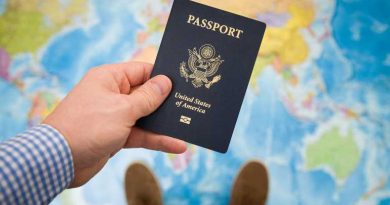Government shutdown could bring air travel chaos — again
When the federal government shut down for 35 days in late 2018 and early 2019, the specter of air travel chaos was a key factor in forcing an end to the standoff.
Now, with another shutdown looming, aviation stakeholders are again sounding the alarm.
A shutdown will commence at midnight on Saturday, unless the House, Senate and the White House can reach an 11th-hour agreement for a short-term budget extension before then.
“On average, the TSA screens 2.5 million passengers per day, exceeding pre-pandemic travel volumes,” the Department of Homeland Security (DHS) warned on Thursday. “If the government shuts down, air traffic controllers and TSA officers would be required to work without pay — potentially leading to significant delays and longer wait times for travelers at airports across the country, based on what occurred during previous shutdowns.”
Congress finally put an end to that 2018-19 shutdown on the very day that a surge in work absences by air traffic controllers in Jacksonville and the Washington D.C. area reverberated across the National Aviation System, leading to a ground halt on flights to New York LaGuardia and causing delays along the East Coast and beyond.
During a shutdown, air traffic controllers and TSA agents would not be paid. A shutdown would also mean the suspension of training at the FAA’s air traffic controller academy in Oklahoma City, even as the nation’s air system capacity is already sharply impacted by a shortage of controllers at all but three of the 313 air traffic control facilities nationwide.
Currently, approximately 2,600 controllers are in training, according to the FAA.
“All that training at their academy in Oklahoma City stops. And then it takes months to get everything started back up. And that’s a big impact on safety,” Jennifer Homendy, chairwoman of the Nation Transportation Safety Board, lamented during a speech this week at the Regional Airline Association Leaders Conference in Washington, D.C.
As the deadline to avoid a shutdown nears, the National Air Traffic Controllers Association (NATCA) union is also speaking out.
“NATCA is working around the clock to educate members of both the House and Senate on how a shutdown would negatively affect our members, their families, and the safety and efficiency of the National Airspace System,” union president Rich Santa wrote in a letter to members this week.
Santa added that a shutdown would be devastating to air traffic controllers.
“If a shutdown occurs, we will ask for everyone in the NATCA family to participate in an all-hands effort to make our voices heard to push Congress to end it,” he wrote.
A government shutdown could also impact air travel in less obvious ways, especially if it is protracted.
A shutdown would pause the already delayed FAA certification processes of the Boeing Max 737-7 and 737-10 variants. The 737-7 will be the smallest version of Max plane and 737-10 will be the largest.
Southwest is especially impacted by the 737-7 delay. Southwest is Boeing’s launch partner for the aircraft and has 192 firm orders, including 82 slated for delivery by the end of next year.
In its warning Thursday, the DHS said that a shutdown could delay the deployment of new security technology equipment at airports and also delay the onboarding of nearly 2,500 employees, including TSA agents.
“This is particularly problematic ahead of the holiday travel season, where more TSA officers will be needed to screen travelers,” the department said.
In the aftermath of the 2018-19 shutdown, then NATCA president Paul Rinaldi said the shutdown led to dropouts from the air traffic controller training programs. He also said it disrupted the implementation of new air traffic control technology programs and halted runway safety programs.
That shutdown spurred calls to ensure that the FAA could not be affected by a government shutdown. Though House Democrats quickly introduced such legislation, it never became law.
Source: Read Full Article



